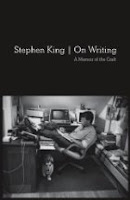 Catching Fire
Catching Fireby Suzanne Collins
2009
Scholastic Press, New York
391 pages
ISBN: 978-0-439-02349
So last Friday, I was feeling a little bit tired and not overly motivated when I got home at the end of the day. Andrew and I talked about going to a movie, but really, I just wasn't in the mood. We decided to save the money and go get a DVD from the library, but I couldn't find anything on the massive wall of library movies that seemed appealing either.
I was standing there, in a funk, when I realized that I had gotten an email to tell me that my requested copy of Her Fearful Symmetry had arrived. I went to grab it off the reserve shelf, and found next to it on the shelf, also with my name on the slip, Chasing Fire. And then I knew what I was in the mood for.
I checked it out and brought it home. I climbed in bed, my wonderful husband made me tea, and I read the whole thing, cover to cover, with breaks only to refill beverages and such. After that, I was decidedly no longer in a funk.
I do have to say that there are few pleasures in life as wonderous as a long stretch of time in bed with tea and a good book. Others include: a long stretch of time in a hammock with iced tea and a good book and cozy snow days when you can spend a long stretch of time curled up inside with hot chocolate and a good book. There are other non-beverage-and-good-book related great pleasures in life, but this is a book blog. Let's summarize by saying that I agree wholeheartedly with Carlos Ruiz Zafon, who said, "reading is up there with sex and chocolate in the list of the Top 10 ways to enjoy your time on this planet."
But about this book specifically. The wise and wonderful Jack O'Brien sent me after The Hunger Games Trilogy a few weeks ago, around when the third book came out. I read the first one, and headed to Barnes and Noble to buy the others. But both Chasing Fire and the third installment, Mockingjay, are currently only available in hardcover, and I have made a deal with myself that severely limits hardcover buying. So it's the library waiting list for me. I wish that I could say that I have been waiting patiently, for patience is a virtue. Alas, I am not blessed with it.
This is a wonderful, exciting, suspenseful book that won't disappoint anyone that loved The Hunger Games. It's thrilling. It's engrossing. The characters are powerful and dynamic. The plot is simply unputdownable. And while the language is not anything to call your literature professor over, especially when coming on the heels of The Book Thief, this is more than just a story. It's challenging. It forces you, while you are gripped in the tale, to ask yourself hard questions, like when rebellion against evil is noble and when it is foolhardy. Of course, you don't ask yourself for too long, because you are too anxious to know if there is a rebellion. But that question, and some others (what it means to be in love and what and who is worth dying for, for example) will stick with you. The deeply disturbing situations involved will likely stick with you as well. The Hunger Games is a decidedly dystopian series. I can say that I have deeply enjoyed these books... I can not say that they have left me with pleasant dreams.
If you like fiction and could use a good page turner, read this. Well, read The Hunger Games first, and then read this. And then you'll probably read Mockingjay... and if you buy it, once you're finished you should send it to me, because the library hasn't delivered yet, and I'm dying here.
I can promise that I'll return it quickly.
NOTE: I have not made a deliberate choice to read a ton of "Young Adult" fiction in the last couple of weeks. Really what's happened is that I've been told certain books are good, and been surprised to find that the little sticker on the side tells me that the library shelves them as "Teen." I'm still organizing my thoughts on what that category means.











